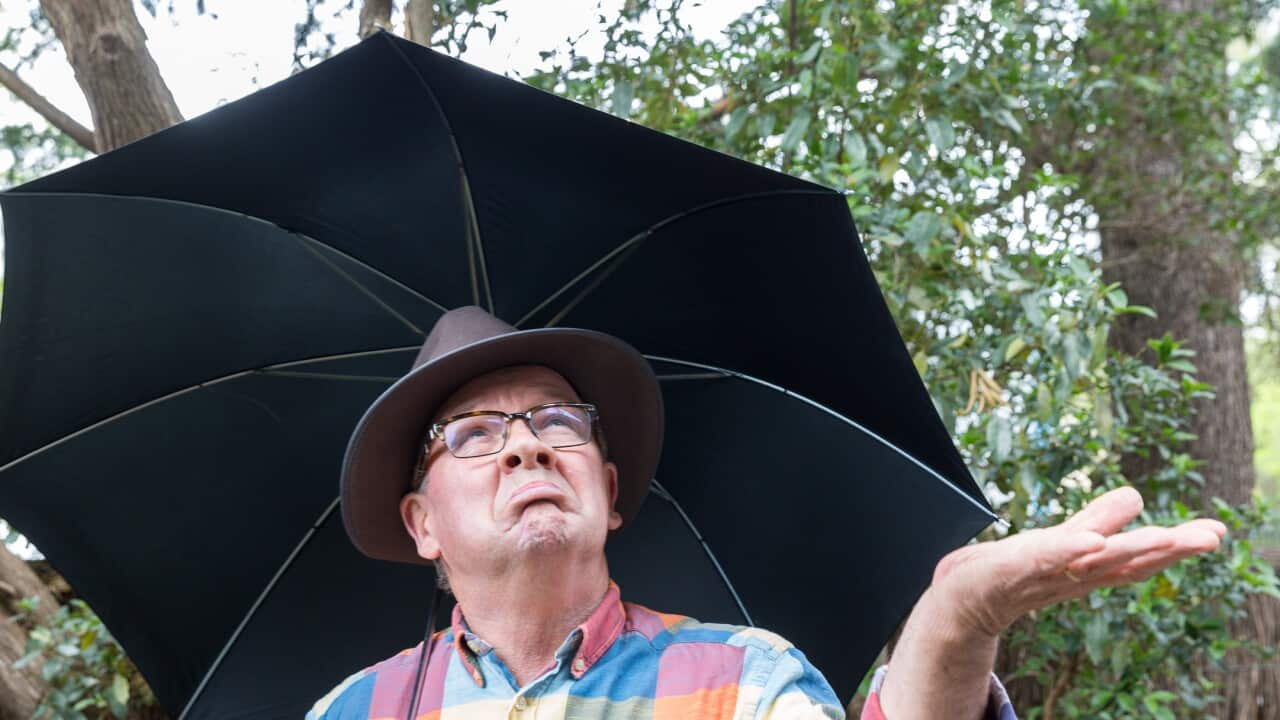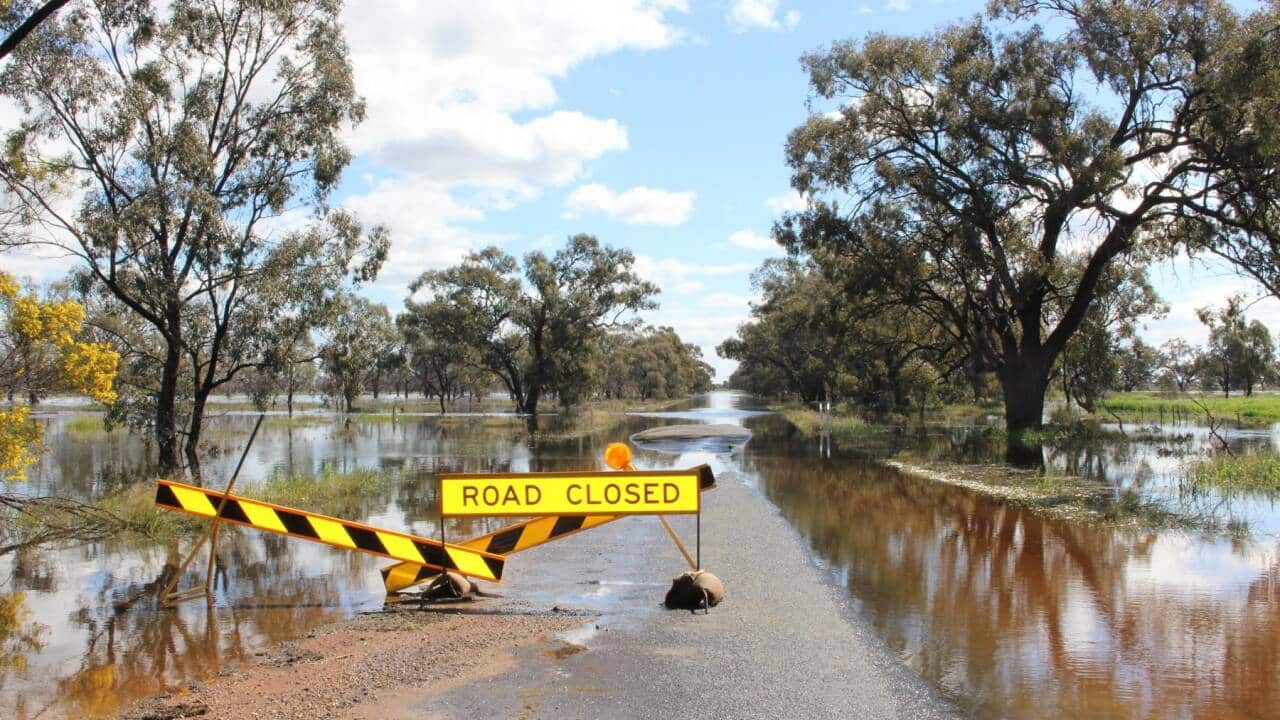英語を理解し話すことは、オーストラリアでの生活を向上させるのにとても役立ちます。ポッドキャスト、では、日々のさまざまなシチュエーションで使えるとっさの英語や表現を、あらゆる例を取り入れて簡単に説明します。
このエピソードは、中級者に適しています。聴き終わったらクイズで学習成果を確認しましょう。
学習ノート
レッスン目標
猛暑や雨についての会話方法
猛暑日について話すときに使えるさまざまなフレーズ:
- It’s a scorcher, isn’t it?
- I feel like I’m melting.
- This heatwave is too much!
- It's sweltering!
- It's a real sizzler!
- When are we going to get a break from his heat?
大雨について話すときに使えるさまざまなフレーズ:
- It's raining cats and dogs.
- It's quite a downpour.
- This rain doesn't seem to be letting up.
- I heard that flood-prone places are being evacuated.
- I hope the rain eases up soon.
- I hope we can get home and there is no flash flooding on the road.
口語的な言い回し:
Small talk ー カジュアルで軽い会話、世間話。
I’m melting means ー とても暑い。
Heading to the beach ー 海に向かっている。
If you are trying to beat the heat ー 暑さから逃れようと、涼しく過ごす方法を探している。
It's raining cats and dogs ー大雨。
If you are being evacuated ー 安全な場所へ避難する。
ボキャブラリー:
Bushfire ー 山火事。ワイルドファイヤー、フォレストファイヤーなどとも言われる
Downpour ー 豪雨
Flood ー 洪水
A flood-prone place ー 洪水の多い場所
Flash flooding ー 鉄砲水
A heatwave ー 熱波
An ice breaker ー 初対面の人と会話を始めるために私たちが言ったり、したりすること
A scorcher ー 非常に暑い
A sizzler ー 非常に暑い
Sweltering ー 蒸し暑い
文化的情報:
受賞歴のあるSBS Audioのマルチプラットフォーム・シリーズ「」は、オーストラリアでの緊急事態や緊急対応に関する実用的な多言語情報を提供し、オーストラリアに定住する移民を支援しています。
スクリプト:
(注:これは一字一句書き起こしたものではありません)
SBS acknowledges the Traditional Custodians of Country and their connections and continuous care for the skies, lands and waterways throughout Australia.
My name is Josipa, and I use small talk about weather as an ice breaker all the time.
An ice breaker is something that we say or use to start a conversation. Any topic can be used as an ice breaker, but the most common one is weather.
Now, I'm sure you have noticed that, there has been a lot of talk in the news about climate change and weather-related problems.
So, in this episode we’re going to practise small talk about extreme weather.
By the way, when we say 'small talk,' we are describing a casual conversation, about everyday topics that are not likely to cause disagreements.
Small talk is one of the best things to learn when you are learning English. It helps you start conversations and gives you more opportunities to practise.
Alright, let's picture an extremely hot summer day. The sun is shining brightly in the sky, and the beach seems like the perfect place to be. At a bus stop, Allan is waiting for a bus when Claire arrives.
Claire
Whew, it’s a scorcher, isn’t it?
Allan
I know...I feel like I’m melting. It’s been over a week. When are we going to get a break?
Claire
Who knows? The forecast says this will be the hottest summer on record.
Allan
Really? I hope we don’t have any bushfires.
Bushfires. It's a word we often hear in Australia. But let's go back to the beginning of the conversation when Claire mentioned,
It’s a scorcher, isn’t it?
This is an informal expression that we can use to describe an extremely hot day.
There are many other expressions we can use to say the same thing. I’ll give you more examples later, but let’s go through the phrases we heard in the dialogue first.
I feel like I’m melting.Allan
Have you ever been so hot you have felt like you are melting? If you say this, you might feel like an ice cream melting in the sun – hot and uncomfortable.
Allan also asked,
When are we going to get a break?
Here, Allan is asking when the situation will change or improve. In this context, "a break" means relief from the hot weather, a period of cooler temperatures or more comfortable conditions.
The forecast says this will be the hottest summer on record.Claire
A forecast is a prediction or estimation about what is likely to happen in the future.
Here, Claire is talking about a weather forecast.
In Australia, the weather forecast is provided by the Bureau of Meteorology, sometimes known as ‘The Bureau’ or ‘BOM’.
You might hear people saying ‘What does the BOM say?’. Which just means ‘What is the weather forecast?’.
On record refers to historical data or information that has been collected and documented over time. So, the hottest summer on record means that it will be the warmest summer ever recorded in history.
I hope we don’t have any bushfires.Allan
Bushfires, also called wildfires or forest fires, are uncontrollable fires in nature like forests, grasslands, and wild areas. They can be extremely dangerous and cause a lot of damage.
As I said before, there are a lot of phrases we can use to say that is extremely hot. In Australia, we love talking about the weather so we have lots of ways of doing it!!
Try these phrases yourself the next time it’s really hot:
- It's sweltering!
- It's a real sizzler!
A sizzler comes from the word ‘sizzle’, which we use to describe the sound of something frying in a very hot pan.
Claire said,
This heatwave is too much!
A heatwave is a long period of extremely hot days.
If it’s been hot and dry, meaning no rain, for a long time this is called a drought. During a drought, the land becomes dry, and it's hard for crops and animals to get enough water.
Now, let’s talk about the other extreme – storms and floods.
Floods happen when it rains a lot and the water can cause damage to roads and homes.
Let's imagine it's been a week of heavy rain, and Allan and Claire are driving home in right in the middle of a thunderstorm.
Claire
It's raining cats and dogs.
Allan
Yes, it's quite a downpour. This rain doesn't seem to be letting up.
Claire
I heard that flood-prone places near the town are being evacuated. I hope we can get home and there is no flash flooding on the road.
Allan
Yeah, Fingers crossed the rain eases up soon.
I love working with Allan and Claire because they help me learn. Just when I feel comfortable with the English language, they show me phrases that I’ve never heard before.
Have you heard the phrase Claire used at the start of the dialogue when she said,
It's raining cats and dogs.
This is a funny way to say that it is raining very hard. Of course, cats and dogs cannot actually fall from the sky. At least I have never seen that! It’s just a fun expression you can use to describe heavy rain.
Allan said,
It's quite a downpour. This rain doesn't seem to be letting up.
A downpour is when the rain is very heavy. And if the rain doesn't seem to be letting up, that means that it is not stopping or getting any lighter.
I heard that flood-prone places near the town are being evacuated.Claire
A flood-prone place is an area that is likely to flood when there is too much rain.
When this happens, people might be asked to evacuate, that is to leave or move to safer areas. The evacuation is done to keep people out of danger and protect them from the flooding.
Claire also said,
I hope we can get home and there is no flash flooding on the road.
Flash flooding is when the rain is really heavy in a short period of time and a flood happens suddenly. If there is flash flooding on the road it can make driving very dangerous.
At the end we heard Allan saying,
Fingers crossed the rain eases up soon.
This means that Allan hopes the rain will become lighter or stop.
It’s really important to understand how to be prepared for extreme weather like flooding, drought and bushfires.
SBS has information in over 60 languages to help you understand what to do in these extreme weather situations.
You can find this information on our , which has articles and podcasts in your language.
And joining us today is Maram Ismali, Content Producer of Australia Explained.
Hi Maram, can you please explain to our audience what kind of content they can find on the Australia Explained website.
Maram
We have podcasts and articles in over 30 languages dedicated to assist migrants settling in Australia with practical multilingual information on migration, culture, jobs, housing and more.
Josipa
Can you give us some example?
Maram
Yes, sure! Our award winning podcast series Emergency Essentials provides essential information to navigate emergencies and nature disasters such as extreme weather hazards like heatwaves and so on.
I have to say that this series won an EMPA Award for Excellence in Emergency Communications. It consists of ten episodes, and you can listen to it on our website.
A big thank you to our educational consultant Professor Lynda Yates, and our guest Maram Ismail.
Paul Nicholson and Lily O'Sullivan voiced the characters of Allan and Claire.
火木土の夜10時はおやすみ前にSBSの日本語オーディオ!
から過去のストーリーを聴くこともできます。






